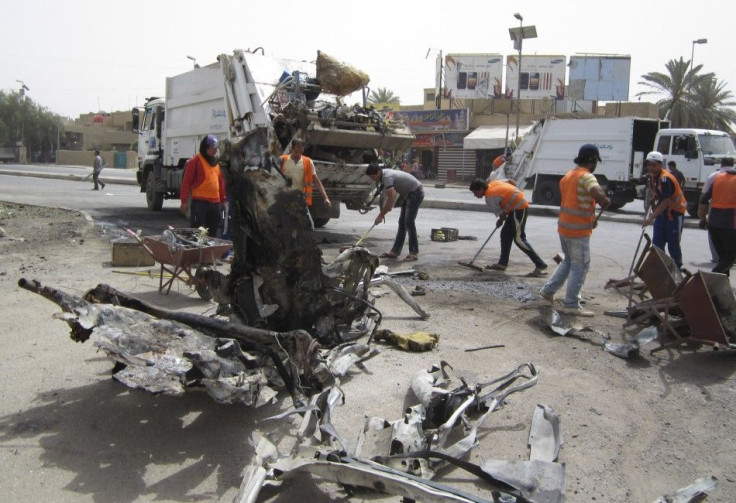Serial Bomb Blasts Kill 36 In Iraq, More Than Hundred Injured (Photos)

A series of bomb blasts hit several areas in northern Iraq, including its capital Baghdad, killing at least 36 and injuring more than hundred on Thursday, according to a Reuters report.
The bombings struck multiple areas in the cities of Samarra, Dibis, Kirkuk, Baqouba and Taji and targeted Shi'ite areas, say media reports. In Baghdad alone, three car bombs, two roadside bombs and suicide car bomb exploded killing 15 people, Reuters reported.
Insurgents also hit northern cities of Beiji and Tikrit with mortar firing, but no casualties were reported from these areas.
The bombs were mostly targeted at security forces and government establishments and are believed to be another attempt by insurgents to destabilize the government and undermine its peace efforts.
I was trying to stop traffic to let a police patrol pass. When it passed, a car bomb exploded and I fell on the ground and police took me to the hospital, a policeman, wounded in the face and chest, told Reuters.
The blasts started at dawn and continued for one-and-a-half hours.The first blast was in a car at a residential area in Diyala province, while the single biggest explosion that killed six happened in Dibis in northern city of Kirkuk. Another two explosions in the same area targeted a police patrol and the head of the provincial investment council, Associated Press reported, quoting Kirkuk Police Brigadier General Sarhad Qadir.
No organization has so far claimed the responsibility for attacks, however, military sources have indicated that the pattern of the attacks points at the involvement of al Qaeda.
These attacks are the latest in sectarian violence by various insurgent groups in Iraq, who are trying to undermine the government's efforts at bringing normalcy to the battered country. Though the violence has reduced drastically as compared to 2006, when tensions among the Shi'ites, Sunnis and Kurds ran very high, sectarian violence still continues in the country.
The violence and the differences in the coalition government between the warring sects have also raised concerns over the stability of the government.
© Copyright IBTimes 2024. All rights reserved.












